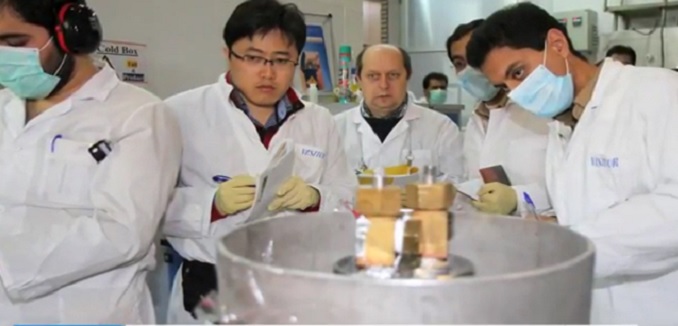The Associated Press (AP) on Monday reported that what it described as “a once-promising U.N. attempt to probe suspicions that Tehran worked on atomic arms” – a reference to long-standing United Nations Security Council demands that the Islamic republic among other things disclose possible military dimensions (PMD) of its nuclear work – was “faltering” amid Iranian foot-dragging on its obligations.
A full accounting of PMD activities is considered a vital prerequisite to ensuring that the West has even the minimal awareness necessary to detect a future Iranian attempt to dash across the nuclear finish line, and Washington Institute Managing Director Michael Singh assessed the situation last November:
The interim agreement permits Tehran to retain all of its nuclear capabilities without requiring it to disclose all about its nuclear weapons-related work, past or present. This is a dangerous combination. Without insight into the full extent of Iran’s clandestine nuclear activities, no amount of monitoring and inspection can provide true confidence that Iran lacks a parallel program beyond inspectors’ view.
The Monday AP report bluntly noted that, despite the interim Joint Plan of Action (JPA) agreement that was aimed at facilitating a comprehensive agreement over Iran’s nuclear program, the U.N.’s nuclear watchdog (IAEA) has in recent months come “no nearer to closing the books on persistent allegations that Iran worked on nuclear arms in the past”:
As part of an evolving November agreement Tehran agreed three months ago to go into deeper explanations of its work on detonators that have a variety of uses, including sparking a nuclear explosion.
That has not happened. Three diplomats told The Associated Press Monday that in a recent formal response, Iran continues to insist that there is no nuclear link to the detonators. Tehran says they were developed only to set off conventional military blasts, and later for civilian uses.
Analysts have become increasingly vocal in worrying that the administration is allowing itself to be maneuvered into negotiating over PMD issues at the very end of comprehensive talks, at which point Iranian negotiators may simply refuse to make further concessions and functionally dare the West to scuttle talks over something that would be characterized as having occurred in the past.
A Reuters report published in February, which suggested that the IAEA had shelved a report exposing weapons-related Iranian work, deepened concerns that Western diplomats intend to look the other way regarding PMD activities.
[Photo: WochitGeneralNews / YouTube]




